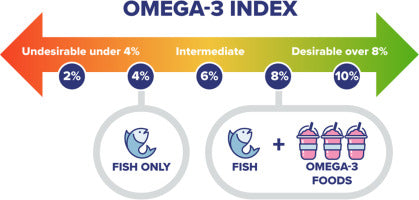Understanding Brain Epigenetics: The Key to Long-Term Cognitive Health
What Is Brain Epigenetics?
Brain epigenetics is a science field that studies changes in the brain. These changes do not alter DNA but can affect how genes work. They can be caused by various factors, like environment or lifestyle. Such changes can influence memory, learning, and even mood. Understanding these processes is vital for maintaining cognitive health as we age.

The Role of Epigenetics in Aging and Memory Loss
The aging process affects memory. But why? Brain epigenetics may hold the answer. As we get older, our genes do not change. However, their activity can. This is due to epigenetic factors. These factors can turn genes 'on' or 'off'. This process affects how cells work. It is vital for brain function. Memory loss is often part of aging. Epigenetic changes in the brain may cause this. These changes might harm the cells linked to memory. Understanding this can help us find new ways to protect our cognitive health as we age.
How Brain Epigenetics Influence Learning and Adaptation
Brain epigenetics affects how we learn and adapt. It's about our genes and experience. Think of it like this: when we learn something new, our brain's epigenetic marks can change. This can either make it easier or harder for us to learn similar things in the future. So, if we keep training our brain in a certain way, we might get better at learning different but related tasks. Scientists are studying this to help people learn better and maintain their mental sharpness even as they get older.
The Intersection of Brain Epigenetics and Lab Testing
Identifying Epigenetic Changes Through Laboratory Testing
Laboratory testing has become a crucial tool in tracking epigenetic changes in the brain. Cutting-edge lab tests can measure biomarkers linked to brain health. For instance, DNA methylation profiles reveal epigenetic variations that might affect cognitive function. Moreover, histone modification tests provide insights into gene expression changes. These are linked to learning and memory. Such lab tests offer a window into the epigenetic mechanisms at play within an individual's brain. Thus, they pave the way for personalized medical approaches to enhance cognitive health and prevent age-related decline.
The Correlation Between Lab Test Results and Cognitive Health
Recent studies show links between lab tests and brain health. Lab results can hint at memory and learning issues. They can also show risk for brain diseases. Researchers use these results to study brain aging. They review factors like DNA methylation. Changes in methylation patterns can affect mental function. Early detection of such changes can help protect the brain. Doctors can use this info to advise on lifestyle and treatment. This makes lab tests key tools in managing brain health. They help doctors and patients understand brain epigenetics. Together, they can work to slow cognitive decline.
Advancements in Epigenetic Testing for the Brain
Recent progress has made testing brain epigenetics easier. Here's a glimpse of the advancements:
- High-Throughput Sequencing Techniques: These allow for rapid analysis of epigenetic markers across the genome.
- Methylation Arrays: They detect DNA methylation, a key epigenetic modification affecting brain function.
- Histone Modification Assays: These tests can unravel changes in proteins that DNA wraps around, affecting gene activity.
- Non-Invasive Sampling Methods: Research now leans on blood and saliva tests to infer brain epigenetic states.
- Bioinformatics Tools: They help interpret complex data, giving a clearer understanding of epigenetic impacts on cognition.
These advances push forward our understanding of brain health and disease.
Strategies for Enhancing Brain Health in the Context of Epigenetics
Lifestyle Changes to Promote Optimal Brain Epigenetics
To boost brain health, certain lifestyle changes can be key. They help shape our brain's epigenetics, which governs how our genes work. Here are some impactful changes:
- Eat a balanced diet: Nutrients like omega-3s and antioxidants support brain function.
- Regular exercise: Physical activity enhances blood flow and gene expression in the brain.
- Adequate sleep: Sleep helps in the maintenance and repair of neuronal DNA.
- Stress reduction: Techniques like meditation can alter gene expression linked to stress.
- Learning new skills: This keeps the brain active and can trigger positive epigenetic changes.
Adopting these habits could lead to better brain epigenetics and health. They can slow cognitive decline linked to aging.
Innovative Therapeutic Approaches for Epigenetic Brain Health
Researchers are exploring innovative therapies to boost brain health. They focus on influencing epigenetic mechanisms. This includes drugs that can change gene expression patterns. There's also interest in nutrients that impact epigenetic markers. Another area is mental and physical exercises that can alter brain chemistry. These therapies aim to enhance memory, focus, and cognitive agility. Each approach taps into our growing knowledge of brain epigenetics. Their goal is to slow or reverse cognitive decline linked to aging.
Case Studies: Successful Epigenetic Brain Health Interventions
Real-world cases show how we can aid brain health through epigenetics.
One study highlights diet's impact. By eating brain-boosting foods, genes linked to cognitive function were activated.
Another case focused on mindfulness and stress reduction. Regular meditation led to changes in gene expression, improving memory and focus.
Exercise also plays a key role. Regular physical activity sparked positive epigenetic effects in the brain, enhancing cognitive resilience.
These cases show the power of lifestyle changes in optimizing brain health via epigenetic mechanisms.




